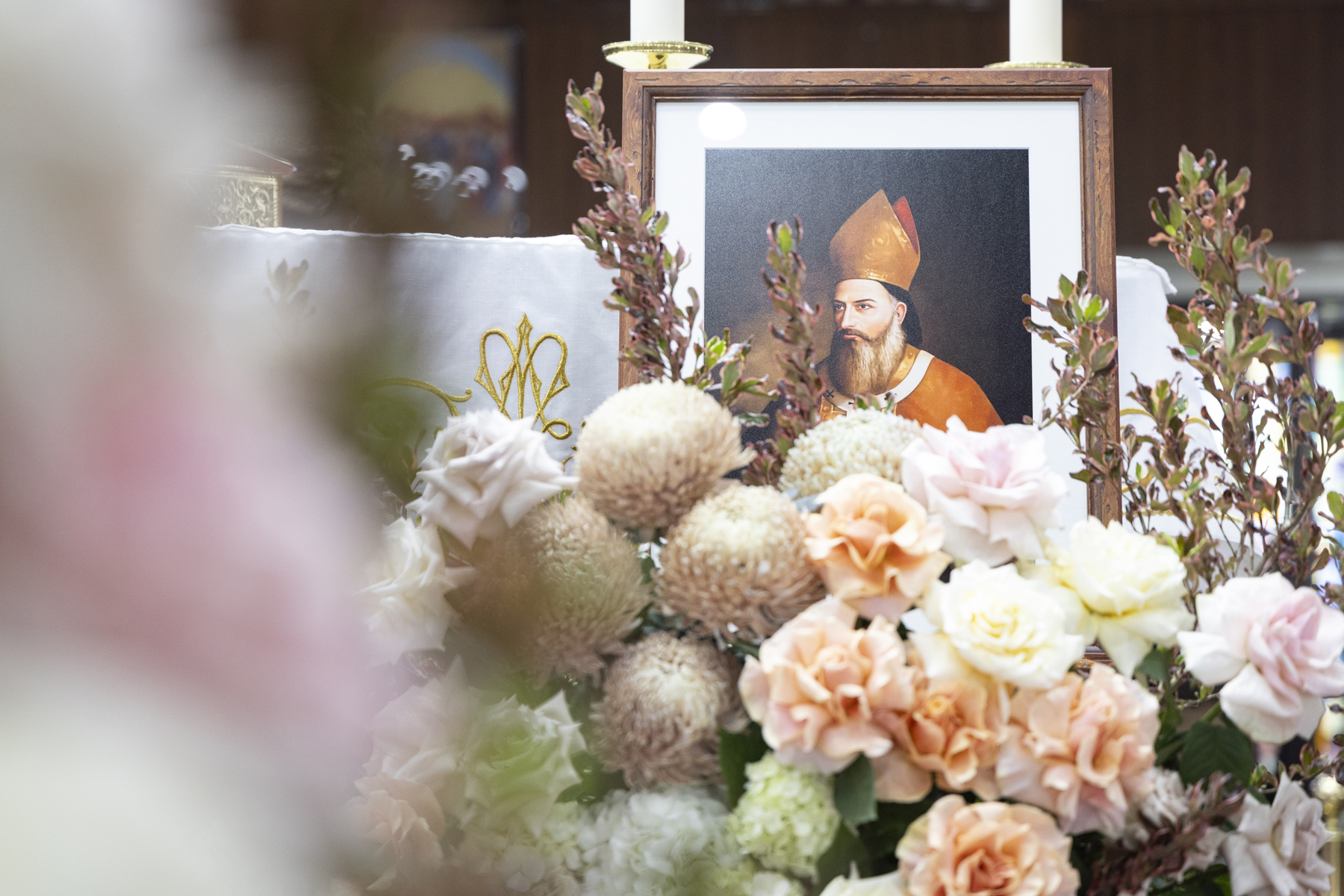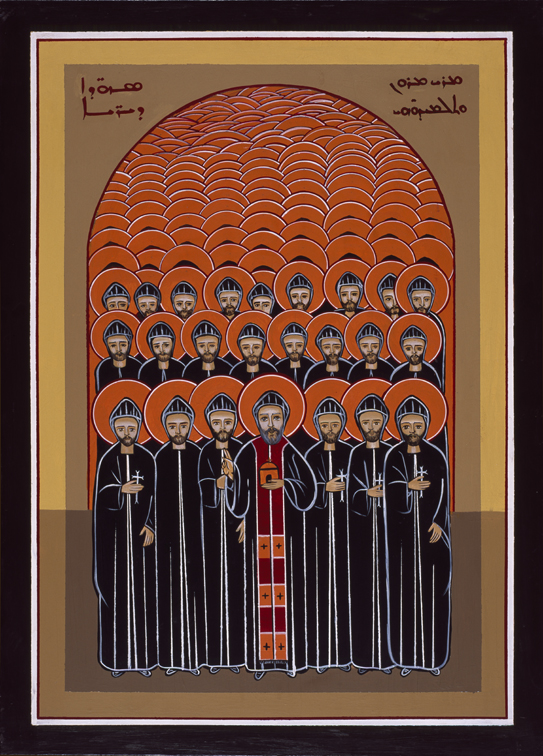The veneration of Mary, the Mother of God, is a very prominent part in the tradition of the Maronite Church, as with the Roman Catholic Church. She is devoutly honoured in the Maronite liturgies, hymns, and culture.
Maronites have always praised and depicted the blessed mother in connection with Christ her Son. This is reflected in our understanding of the Assumption, the foremost and most significant of her feasts, when she, a mortal creature, was taken into heaven by Our Lord. The Assumption was, in fact, not only a feast of Mary but also a feast of Christ, for the Assumption is a reunion of mother and divine Son.
In the Maronite Antiochene tradition and spirituality the connection between the faithful and Mary has been at the forefront of our faith tradition. For since the foundation of the Maronite Church in the 7th Century, successive Maronite Patriarchs have sought her intercession and protection, even building and naming residences in her honour; from Our Lady of Yanouh to Our Lady of Ilige; to Our Lady of Qannoubine and Our Lady of Bkerke, Mary has always been a companion on the long journey of the Maronites from the beginning until now.
Though the journey for the Patriarchs and their flock has been marked by challenges, persecution and martyrdom, the Maronites have always carried with them their deep faith in God and their veneration to Mary the Mother of God. It is no coincidence then – that since arrival in Australia in the 19th Century – the Maronites have kept tradition alive and have built three Maronite Churches so far, dedicated to Our Lady of Lebanon.
Mother of God; “Theotokos”(Greek), “Yoldat Aloho” (Syriac)
These are, and always have been, the chief epithets of Mary in the Maronite tradition, for the basis of the honour we accord her is her motherhood of Jesus Christ, true God and true Man.
The earliest known Syriac text mentioning the Yoldat Aloho the Mother of God, dates back to around 100 AD in Hymn 19 of the Odes of Solomon. These hymns are among the earliest witnesses to Christianity, outside of the New Testament. They are the oldest surviving Christian hymnals, and were even translated into Latin. This particular Ode praises Mary first for being the Yoldat Aloho, and then for her role as a parent, and even her role as an Apostle.
“The cup of milk was offered to me, and I drank it in the sweetness of the Lord’s kindness. … The womb of the Virgin received it, and she conceived and gave birth. So the Virgin became a mother with great mercies, she laboured and bore the Son, but without pain, … She bore with desire as a strong man, and … she possessed with great power. She loved with salvation, she guarded with kindness, and she declared with greatness.”
In the sublime “Magnificat” in St Luke’s Gospel, we can read what she so greatly declared.
Traditional Maronite depictions of the Mother of God always, without exception, show her with her Son. The icon of Our Lady of Ilige, that is more than one-thousand-year-old, is a prime example: the wonderful young woman presents the Child Jesus to us. Both sun and moon are shown in the icon, to show that yes, Christ entered this world in time, but now He and His Mother abide in heaven, in eternity, and call us to come to God.
The strong Maronite devotion to the Virgin Mary is evident in ancient and modern prayers alike. The prayers of the divine office that the monks used to pray with the faithful are a good example. The place of Mary in the prayer books, old or new, is a prominent position where we find special sections and hymns devoted to her. It is the understanding that the Blessed Virgin prays with the faithful, along with the angels and saints, and she intercedes for them with her son Jesus.
The profound connection between the Eucharist and Mary, the Mother of God is woven in every Maronite Divine Liturgy. In the preparation for the Eucharist, two Marian hymns are sung:
“The Lord reigns clothed in majesty, Halleluiah! Our Lord Jesus said “I am the Bread of Life. From the Father I was sent as Word without flesh to give new life. Of the Virgin Mary I was born, taking flesh as man; as good earth receives a seed, her womb received me. Priestly hands now lift me high above the altars.”
Then, after the prayer over the offerings we chant:
“Halleluiah! Honour Mary Mother of Our Lord and God, and with her remember all the righteous ones, prophets and apostles, martyrs and the priests, and the children of the Church, from age to age.”
The first hymn connects the Yoldat Aloho with the Incarnation of the Lord, and also with the Eucharist, while the second hymn extends this connection to her association with prophets, Apostles, priests (as in the Odes of Solomon) and the Church as a whole. These ancient hymns continue, into our own day, the tradition which dates back to at least the year 100, when some people who knew Jesus would have still been alive.
It is noteworthy that Mary holds significance beyond Christian veneration in Eastern Traditions. Since 2010, in Lebanon and subsequently in Jordan and Syria, the Feast of the Annunciation has been jointly celebrated by Christians and Muslims. This unique occasion Is marked by both religions praying together and honouring Mary the Mother of Jesus.
In 2012 when the Maronite Church in Australia also embraced this Feast in such a way, inviting Christians and Muslims from various denominations to gather and to pray together for peace and fraternity.
How fitting that understanding and harmony between the faiths is brought about through Mary. If this comes to pass, it will be a most extraordinary mercy which God has worked through her. It will be a fitting page in the history of the development of our understanding of the role of Mary in the divine plan of salvation.
+Bishop Antoine-Charbel Tarabay
*Image: Icon of Our Lady of Ilige




